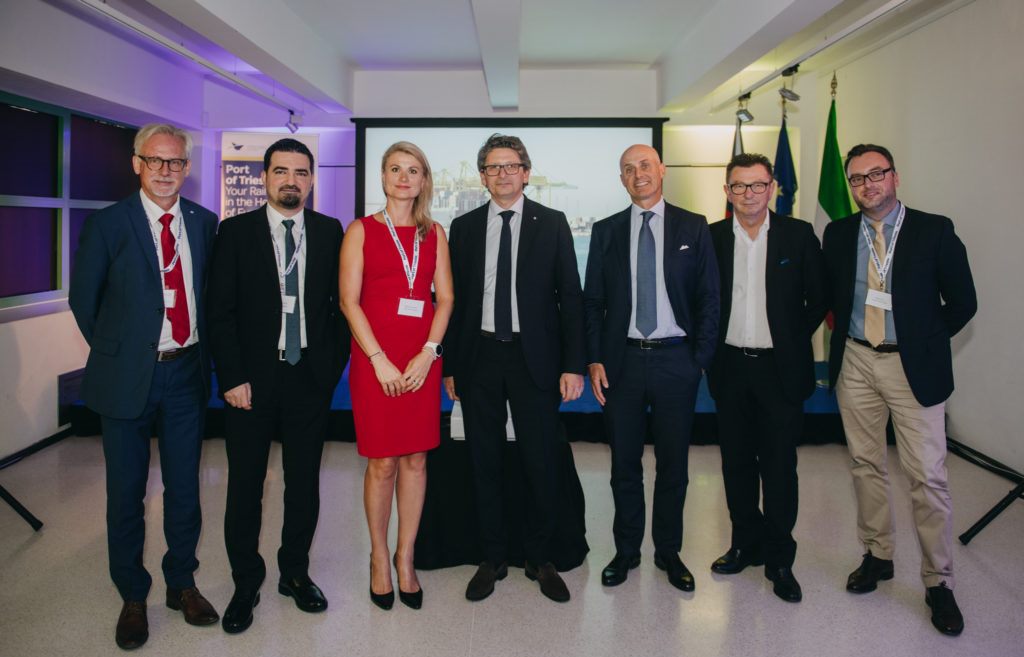Prague, the Port of Trieste presents itself as a gateway to the Czech Republic

PRAGUE - Approximately 150 operators attended the presentation of statistics and news on rail services at the Port of Trieste, which was held on Wednesday, 7th June in Prague. The success of the meeting laid the groundwork for a development that allows the port of call of Friuli Venezia Giulia to become a gateway to the economy of the Czech territory.
Such event – organized in the Manes Center, a Palace of the 1930s overlooking the Vltava – was promoted by the Port Network Authority of the Eastern Adriatic Sea, in collaboration with the Italian Embassy in Prague and the Italian-Czech Chamber of Commerce. " With respect to the other Italian harbors, we go against the flow. Our vocation is international: 90% of our traffic is directed abroad, while 10% serves the internal market", explained the president of the Authority, Zeno D'Agostino. "Everything we do is connected to the railways. The railway development of the port - he added - is experiencing an unprecedented growth, going from 5,980 trains of 2015 to 8,681 in 2017, and we and aim to touch 10,000 trains by the end of 2018".
The Italian ambassador in Prague, Aldo Amati, had previously spoken, by emphasizing the strategic role of the port of Trieste for Central-Eastern Europe and its international relationships, especially with China. After him spoke Alessandro Pasquale, vice president of the Italian-Czech Chamber of Commerce and Mario Carini of Assicurazioni Generali, who stressed the historical link between the insurance company and its port.
The mission ended with some institutional meetings at the Czech Ministry of Transport and the Directorate General of the Czech Railways. It should be emphasized, however, that nowadays 3 pairs of trains per week already depart from the container terminal of Trieste Marine terminal with destination Paskov. It is a company train, managed by MSC, to which are added the 4 weekly departures to the Slovak terminal of Dunajská Streda, in the south of Bratislava. These two services – as noted by Michaela Svrckova, head of MSC Prague for the Czech Republic and Slovakia – have a use in import/export that reaches almost 100%, a sign that the link works, having large margins of growth on frequencies. Important figures also for EMT, which from Molo VI, manages 4 pairs of trains towards Ostrava per week, as explained by Murat Boğ, manager of Ekol (a Turkish group that controls the intermodal terminal).

